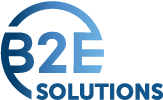With the new year in full swing, now’s an ideal time to get organized. If you’re an employer or HR manager, that can mean digging through a lot of employee paperwork and digital files. As you’re doing that, you may wonder “how long am I required to keep these?” Of course, complying with recordkeeping requirements is a fundamental part of your job. But, compliance can be a tricky topic since federal agencies, individual states and local statutes all have their own requirements.
Considering the nuances, chances are you might have questions when it comes to the keeping or purging of employee records. But not to worry, we’re here to answer those questions and share best practices. Let’s dive in!
What’s legally considered an employee record?
First, let’s break down the basics — what constitutes an employee record? Employee records include all personnel files, payroll records, benefits enrollment forms and medical records. When an employee leaves, regardless of the circumstances, you have an obligation to store those records in a secure location.
How long are you required to keep employee records?
The short answer is it depends. As mentioned, states and local statutes sometimes have different requirements than federal agencies. Because of this, it’s best to play it safe and retain employee records according to the most stringent requirement — whether that’s from the feds, state or locality.
Failure to comply with recordkeeping laws can come with strict penalties and fees, so it’s important to stay up to date on the requirements. To ensure you’re compliant, check your state and local laws to confirm the requirements. Then compare them to the federal requirements, as outlined by the Equal Employment Opportunity Commission (EEOC) and the Fair Labor Standards Act (FLSA), to determine your best course of action. Here’s a breakdown of those guidelines:
The EEOC requires employers to maintain all personnel and employment records for one year. Employers must also keep any employee benefit plan information, such as pension and insurance for at least one year after termination. If there was any written seniority or merit system in place, those records must be kept for the full period the plan was in effect, and at least one year after its termination. Payroll records, however, are a different story — employers are required to keep those longer. Due to requirements set forth by the Age Discrimination in Employment Act (ADEA), employers must keep payroll records for three years from the employee’s termination date.
Like the EEOC requirements, employers are required to keep payroll records for non-exempt employees for three years under the FLSA. Those records include employer copies of pay stubs, proof of wage payments, proof of overtime wages paid, regular and overtime hours worked, payroll deductions and other wage-related materials.
Is there an easier way?
When you’re storing employee records in file cabinets or on your company’s shared drive, it’s easy to accumulate an overload of documents. And before you know it, you’re misplacing employee records, mishandling confidential information, paying for extra storage, and spending way too much time cleaning out and organizing your files each year. Wouldn’t it be better to just simplify your recordkeeping responsibilities?
That’s where Orbit Solutions comes in. Orbit Solutions is a powerful full-suite human capital management (HCM) platform that can help you manage compliance by taking the pain and risk out of your recordkeeping practices. Here are a few ways Orbit Solutions can help:
- No purging required: Rather than determining which documents to keep or discard, you can simplify the entire process and keep them all contained within Orbit Solutions Past or present, all employee records are retained indefinitely in one safe place.
- One employee record: You have a single go-to source for every employee. No more duplicate, contradictory records. No more misplaced files. And no more digging through disparate systems to find the employee-specific information you need.
- Automated recordkeeping: Any activities or data that applies to an employee is automatically associated with their employee record. For example, if you use Orbit Payroll to run payroll for your employees, data from payroll records, pay stubs, overtime wages, deductions, and more will automatically sync with each employee’s record.
- Safety and security: Thanks to cloud technology with added security measures, your employees’ sensitive information is safe from malicious or accidental breaches — and automatically backed up for good measure.
Want to learn more about how Orbit Solutions can make employee record management easier and safer? Contact us today!






